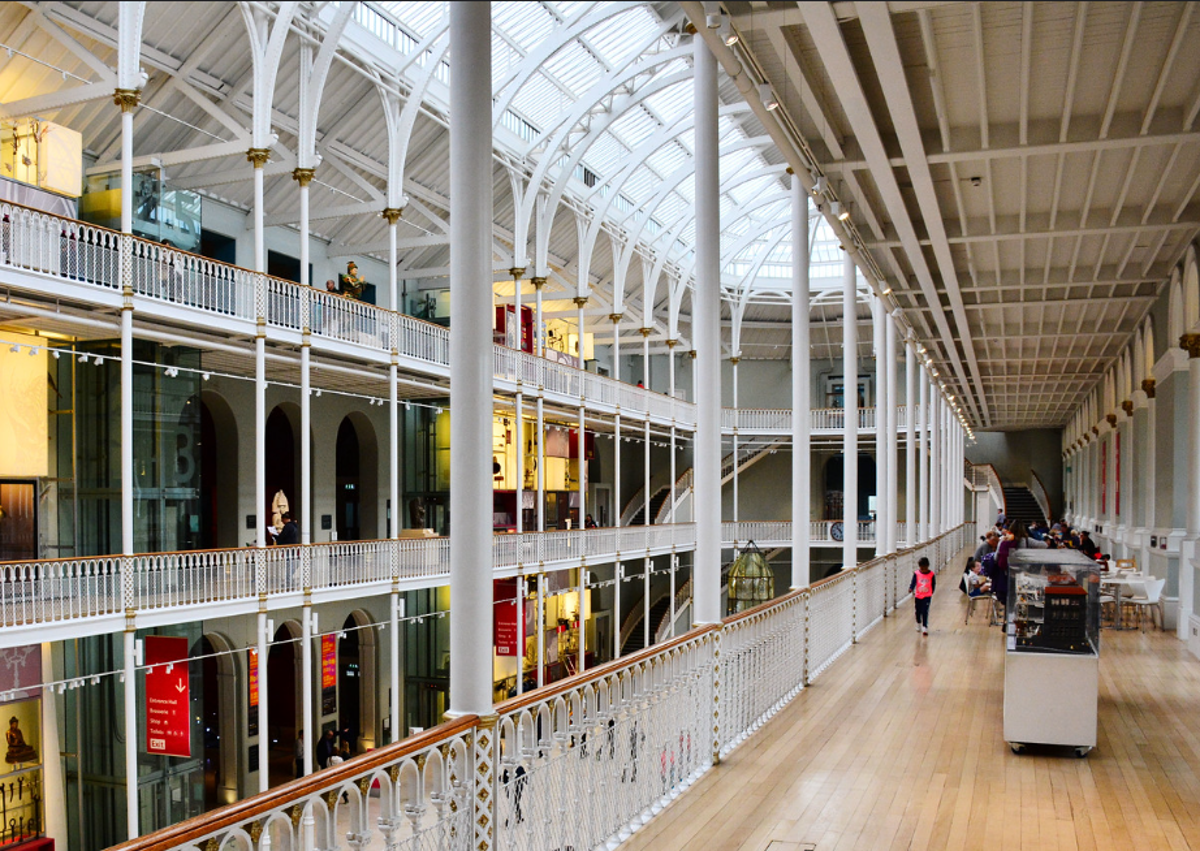
Photo: Mike McBey
Scottish museums and galleries to get energy support
Museums and galleries in Scotland can apply for funding to help make buildings more energy efficient to counteract rising costs.
A fund to help museums and galleries in Scotland deal with rising costs by improving the energy efficiency of buildings has been launched.
Museums Galleries Scotland (MGS), the national development body for the Scottish museums sector, which had previously paused its Museum Development and Small Grant programme, has now replaced it with a new Resilience Fund to help institutions facing “significant financial challenges”, in particular the rising cost of energy bills.
The new fund, which will open next Monday (24 October) will not involve additional money, but will be targeted to support organisations experiencing problems as a result of the rising cost of living impacting on visitors and staff, as well as soaring energy costs.
READ MORE:
The decision to create the new targeted fund was taken in response to feedback from museums and galleries on their concerns and priorities, MGS said in a statement.
“The grants programme we were running had been planned in March 2022, before the impact of the cost-of-living crisis and inflation had become so apparent,” said Gillian Simison, Senior Grants Manager at MGS.
“As the summer went on, we increasingly heard from museums who were expressing concern about the financial situation.”
In response, MGS has repurposed its grant funding for the rest of the financial year, she said.
“Museums and the communities they serve are facing significant financial challenges and MGS is responding to this by repurposing its grant funding for the rest of the financial year,” the organisation said.
Grants of between £1,500 and £50,000 will be offered to successful applicants, dispersed over two rounds, scheduled for November and January. Money will be available to "directly increase resilience" by reducing costs, increasing income or support the local community.
"Proposals to improve the energy efficiency of museums will be prioritised in assessment, together with those that will deliver the most immediate positive impact," MGS said.
Prioritising energy efficiency
Projects are expected to be delivered within one year of the award but the organisation is offering increased flexibility around delivery dates for capital projects for energy efficiency.
The fund will not directly cover the costs of energy bills “but we are very keen to support museums to improve energy efficiency, as this will have long-term benefit both for their costs and for the climate,” Simison said.
"We are looking for cohesive proposals where you can clearly articulate the difference the funded activity will make to your financial situation and community role," MGS said.
"You should supply evidence to support the approach you are proposing and reasonable projections and figures for impact, with timeframes for these results. Proposals that are a 'wish list' of improvements without a clear rationale of how these will directly increase overall resilience are unlikely to be successful."
Simison said the fund can be accessed “by any accredited museums in Scotland, including those run by local authorities and universities, as well as independent museums”.
“However, the National Museums of Scotland and the National Galleries of Scotland are not eligible to apply as they have separate funding agreements directly with the Scottish Government.”
Details of the fund come amid rising concern within the sector about the impact of rising energy costs. Under plans announced last month by Business Secretary Jacob Rees-Mogg, energy prices for non-domestic energy customers such as businesses, charities and public sector organisations will be cut in an effort to help them survive.
The Government Energy Bill Relief Scheme, which applies across the UK, will provide a discount on wholesale gas and electricity prices for all non-domestic customers for an initial six-month period from 1 October 2022 to 31 March 2023, with savings likely to be first seen in bills received in November.
But there are concerns that, even with government support, some organisations will struggle to survive. A recent survey by the Association of Independent Museums found that a significant proportion of UK museums are planning to reduce opening hours or cut back on programming as a result of the cost-of-living crisis.
A total of 14 of the 350 museums that respondended conceded they were 'at risk of insolvency', two of these 'imminently' – potentially going out of business by Christmas.
The end of fixed-term energy contracts and the potential for high energy costs to continue into next year were cited as particular causes for concern. The survey found that 70% of organisations cited energy costs as the main pressure they currently face. Just over 40% are working on reducing consumption, with 20% seeking financial support to aid with this.
Efforts cited included: accessing grants for energy efficient heating and lighting; reducing interior temperatures; changing damp controls; less use of high-energy equipment; warm clothes and targeted heating for front of house colleagues; solar panels; installing secondary glazing and keeping doors closed; and a reduction of the time staff are onsite requiring heating.
Join the Discussion
You must be logged in to post a comment.